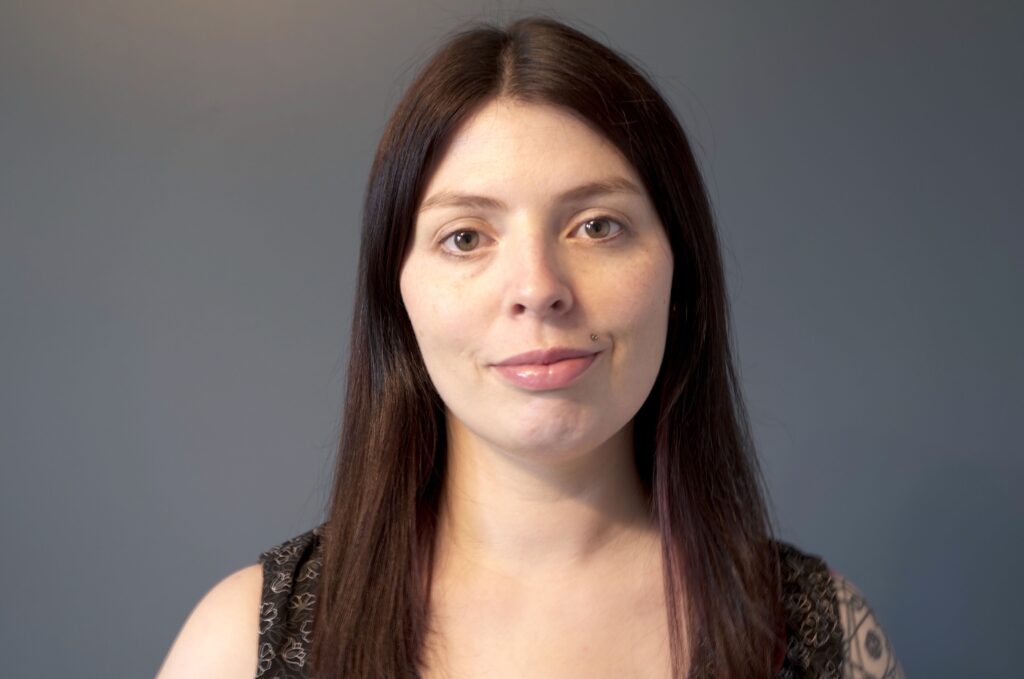The doctoral student Maude Sills-Néron is also working on a research-creation project in which she is incorporating neuroscience concepts into the script of a feature film.

Olivier Du Ruisseau
Maude Sills-Néron, a doctoral student in cinema studies at the Université de Montréal, recently joined the cinEXmedia team in charge of student affairs. With the creation of this new position, the partnership wishes to introduce the student community in Montreal to intersectoral research and to bring together students from every horizon who are working on related projects.
“We want to develop activities around the question of how cinema is perceived, with scientific study of the cinematic experience”, Sills-Néron explains. “So we are going to try to implant our vision of cinema studies, meaning a more scientific and intersectoral vision in a manner connected to the neurosciences or to cinema’s materiality, for example”.
Because Sills-Néron has just taken up her position, a calendar of activities is not yet ready. “But we already know that we are going to organize a ‘media club’ this summer, and that in the fall we are going to provide training in research-creation or on topics related to cinEXmedia’s fields of research”, she continues. “We are also going to begin the media club’s activities (in French only) with a discussion of questions around representation and the concept accessibility in the Australian series Heartbreak High” on June 27, on campus.
“We are also going to put students in touch with scholars who work with filmmakers and researchers. I’m thinking of Santiago Hidalgo, executive director of cinEXmedia, who collaborates with researchers at the research centre of the l’Institut universitaire de gériatrie de Montréal. It is important to show that this kind of research is possible, whether through training programs or laboratory visits”.
Research-creation
Maude Sills-Néron is extremely committed to cinEXmedia’s intersectoral approach, because she herself is incorporating neuroscience concepts into the writing of a feature film script as part of her doctoral degree in research-creation being supervised by Isabelle Raynauld.
“It’s the story of a biologist who suffers from an unidentified illness, causing her episodes of great fatigue and chronic pain”, she relates. “One day, she tries a biohacking experiment on herself, which involves ingesting a parasite in the hope of getting better. In the beginning, it helps her a lot, she feels superhuman. But soon afterwards she loses all her senses. She no longer knows where her body is in space and she no longer knows how to control her movements. She then experiences all kinds of hallucinations”.
Sills-Néron seeks to “communicate the affects of this character. The parasite interacts with her neuronal circuits. I want to base myself, therefore, on studies in the neurosciences in order to show how it will act, but also to put affective empathy into words and images. For example, my character will experience situations when her emotions overload, situations of cognitive overload – physical stresses which can be difficult to indentify. This is why I must base my writing on scientific data”.
To do so, she plans in particular to carry out interviews with scientists. She has not yet chosen all her sources, but she already knows that she will meet with researchers at BRAMS – International Laboratory for BRAin, Music and Sound Research, jointly affiliated with McGill University and the Université de Montréal.
In addition, as part of her doctoral work she is not only writing a film script; she does not rule out making the film one day: “This project would be ideal for a film production company specializing in research-creation, given its highly experimental nature, as it puts complex neuroscientific phenomena into images. For the moment, I still have a few years of work in front of me, beginning with my Ph.D. exams this summer”.
